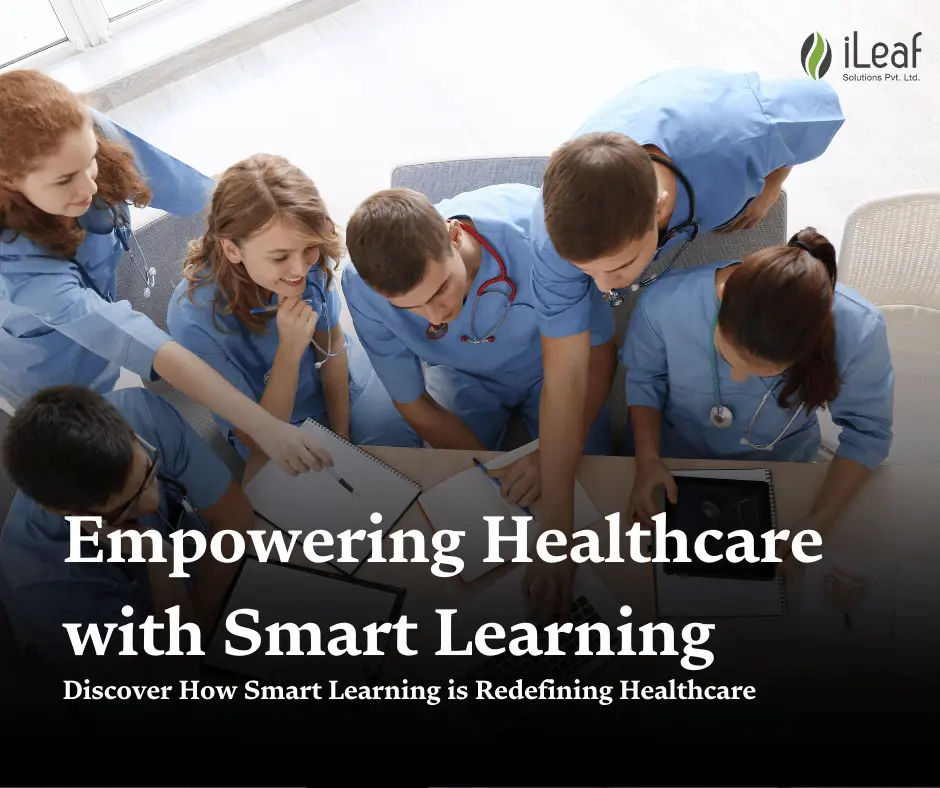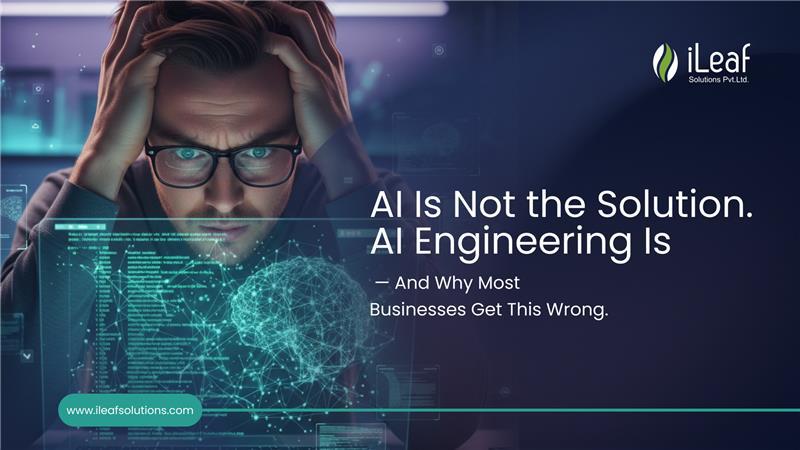Future-Ready Healthcare: Empowering Healthcare with Smart Learning

Overview
- Introduction
- The Intersection of Healthcare and Smart Learning
- Key Technologies Transforming Healthcare
- Benefits of Smart Learning in Healthcare
- Case Studies: Smart Learning in Action
- Challenges and Considerations
- The Road Ahead
- Conclusion
Introduction
In the rapidly evolving landscape of modern medicine, the integration of advanced technologies like AI and machine learning is not just a trend but a necessity. As healthcare faces unprecedented challenges, from aging populations to increasing demands for personalized care, the concept of "Healthcare with Smart Learning" has emerged as a transformative solution. This blog explores how smart learning technologies are shaping the future of healthcare, offering insights into the potential they hold for patients, practitioners, and the industry at large.
The Intersection of Healthcare and Smart Learning
Smart learning, an amalgamation of AI, machine learning, and big data, is revolutionizing various sectors, with healthcare being one of the most significant beneficiaries. This technology-driven approach empowers healthcare providers by enhancing their ability to deliver accurate diagnoses, personalized treatments, and improved patient outcomes. But what does this mean for the future of healthcare, and how are these advancements poised to reshape the industry?
Key Technologies Transforming Healthcare
Artificial Intelligence (AI) and Machine Learning
AI and machine learning are at the heart of smart learning in healthcare. For example, AI algorithms can analyze medical images more quickly and accurately than humans, leading to faster and more reliable diagnoses.
Big Data Analytics
Big data analytics tools help healthcare providers sift through this information to uncover insights that were previously hidden. This enables more informed decisions and the development of personalized treatment plans based on a patient's unique medical history and genetic profile.
Telemedicine and Remote Monitoring
Smart learning technologies are also driving the adoption of telemedicine and remote monitoring solutions. These tools allow healthcare providers to monitor patients in real-time, regardless of their location, ensuring continuous care and early intervention when needed. This is particularly valuable in managing chronic diseases and post-operative care.
Benefits of Smart Learning in Healthcare
Enhanced Patient Care
By harnessing the power of smart learning, healthcare providers can offer more personalized and effective care. For instance, AI-driven diagnostic tools can detect diseases at earlier stages, improving treatment outcomes. Moreover, predictive analytics can forecast patient risks, enabling preventive measures before issues escalate.
Increased Efficiency for Healthcare Providers
Smart learning technologies reduce the burden on healthcare professionals by automating routine tasks such as data entry, scheduling, and even certain diagnostic processes. This allows doctors and nurses to focus more on patient care rather than administrative duties. Additionally, AI-driven tools can analyze medical records and suggest potential treatment options, speeding up decision-making processes.
Cost Reduction
The integration of smart learning into healthcare systems can lead to significant cost savings. By improving the accuracy of diagnoses and enabling more efficient treatment plans, these technologies reduce the need for unnecessary tests and procedures. Furthermore, telemedicine and remote monitoring can decrease hospital readmission rates, leading to lower overall healthcare costs.
Improved Access to Healthcare
Smart learning technologies have the potential to make healthcare more accessible, especially in remote and underserved areas. Telemedicine, powered by AI, can connect patients with specialists from anywhere in the world, breaking down geographical barriers. This democratization of healthcare ensures that more people can receive the care they need, regardless of their location.
Case Studies: Smart Learning in Action
IBM Watson Health
IBM Watson Health is a prime example of how AI and smart learning are transforming healthcare. Watson’s AI capabilities are used to analyze medical data, offering insights that assist in cancer treatment plans. The platform can sift through millions of clinical trials and medical records to suggest personalized treatment options for patients, helping doctors make more informed decisions.
Google Health
Google Health leverages machine learning to improve diagnostic accuracy. One of its notable achievements is the development of an AI algorithm that can detect diabetic retinopathy, a condition that can lead to blindness, with a level of accuracy comparable to human specialists. This technology is now being deployed in regions with limited access to healthcare professionals, improving patient outcomes globally.
Mayo Clinic's AI Initiatives
The Mayo Clinic has integrated AI into its clinical practices, using machine learning to predict patient outcomes and optimize treatment plans. For instance, Mayo Clinic’s AI-driven tools help identify patients at risk of developing complications after surgery, enabling preemptive interventions that save lives.
Challenges and Considerations
While the benefits of smart learning in healthcare are immense, it is not without challenges. Data privacy and security are major concerns, as the integration of AI and big data analytics involves handling sensitive patient information. Healthcare providers must ensure that robust cybersecurity measures are in place to protect this data from breaches.
Moreover, there is the issue of the digital divide. Not all healthcare facilities have the resources or infrastructure to implement advanced technologies, particularly in low-income regions. Ensuring equitable access to smart learning tools is essential to prevent disparities in healthcare quality.
The Road Ahead
The future of healthcare lies in the continuous evolution of smart learning technologies. As these tools become more sophisticated and accessible, they will play an increasingly vital role in improving patient care, reducing costs, and making healthcare more efficient. However, the industry must also address the challenges associated with these technologies to fully realize their potential.
Healthcare with smart learning is not just a concept; it is the future of medicine. By embracing these innovations, we can build a healthcare system that is more responsive, personalized, and ready to meet the demands of the future.
Conclusion
Empowering healthcare with smart learning is a transformative journey that holds the promise of a healthier future for all. By leveraging the power of AI, machine learning, and big data, the healthcare industry can overcome its current challenges and pave the way for a new era of patient care. As these technologies continue to advance, they will undoubtedly become an integral part of our healthcare ecosystem, ensuring that we are well-prepared for whatever the future holds.














